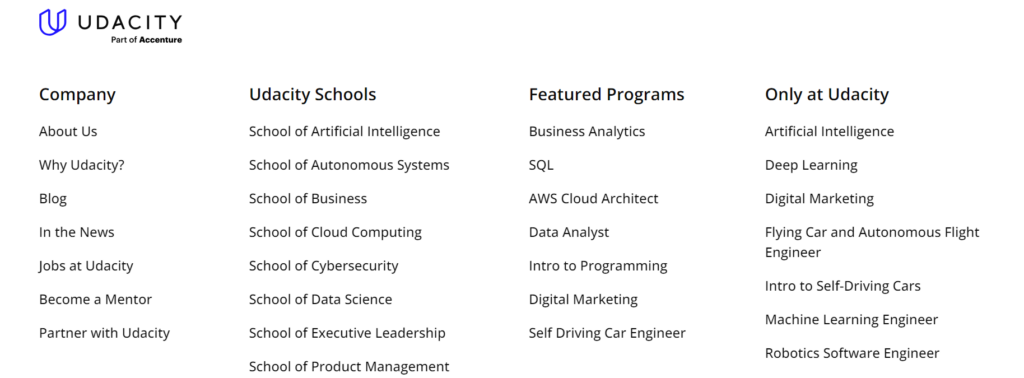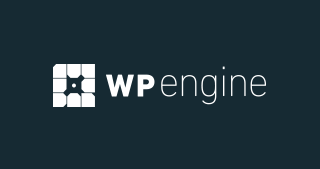Udacity is a well-known online learning platform, primarily focused on providing technology-related courses and programs. Since its launch in 2011, Udacity has distinguished itself by offering a range of job-specific programs called Nanodegrees that aim to equip students with practical, real-world skills needed in today’s job market, especially in areas like data science, artificial intelligence, cloud computing, and programming.
Udacity Overview
Unlike traditional educational institutions, Udacity’s courses are often developed in collaboration with industry leaders such as Google, Microsoft, Amazon, and Facebook. This partnership model ensures that the skills taught are directly aligned with the needs of top tech companies, making the platform especially valuable for those seeking to advance or transition their careers in tech.
The company’s mission is to bridge the gap between education and the job market by providing skill-based education that is both flexible and affordable. Udacity appeals primarily to professionals and students who want to learn job-ready skills, either to enhance their current roles or transition into new career paths. Its courses and programs range from beginner to advanced levels, ensuring that learners at all stages of their careers can find relevant learning material.
Udacity started when two Stanford instructors, Sebastian Thrun and Peter Norvig, had a groundbreaking idea: they decided to offer their “Introduction to Artificial Intelligence” course online for free, so anyone in the world could join. This course attracted over 160,000 students from more than 190 countries, showing the need for a new way of delivering education.
Surprisingly, the top 400 students in the course were not from Stanford University, which highlighted that talent and potential exist everywhere. This inspired Udacity’s mission to make learning available to more people, regardless of where they live or their background. Since then, Udacity has worked to create more educational opportunities for learners around the world. Today, Udacity is also a part of Accenture, a leading global company.
Udacity has a successful approach that can be applied worldwide, helping to solve the big problem of digital talent shortages, which affects growth, productivity, and innovation in many industries. They work closely with businesses and dedicated learners to create a customized learning journey through their Digital Competency Platform.
Their unique content is developed and constantly updated in partnership with industry leaders. Each Udacity program is carefully designed to focus on specific skills, making it easy to choose the right course without confusion.
Instead of following simple step-by-step instructions, their projects help students develop critical thinking skills that are essential for real-world jobs. Expert mentors provide personalized support to guide students through any learning challenges and ensure they fully master the necessary skills.

Key Features of Udacity
- Nanodegree Programs
The hallmark of Udacity is its Nanodegree programs. These short, intensive programs typically span three to six months and cover a wide range of tech-related subjects like programming, data analysis, artificial intelligence, and cloud computing. Each program is developed in collaboration with industry leaders, ensuring that the curriculum aligns with current market needs. - Hands-on, Real-World Projects
Every Nanodegree program includes practical, hands-on projects designed to simulate real-world challenges. For instance, students in a data science program may work on a machine learning project that involves building predictive models. These projects are evaluated by industry professionals who provide in-depth feedback, ensuring that students are mastering the necessary skills. - Flexible Learning Pathways
Udacity’s platform is designed to accommodate learners of all levels. Whether you’re a beginner with no prior experience or an advanced professional looking to refine your skills, Udacity offers personalized learning paths. The flexibility of the program allows students to learn at their own pace, making it a great fit for individuals who may have other commitments like work or family. - Mentorship and Student Support
Udacity stands out for its emphasis on student support. The platform offers a personalized mentorship service, where each student is assigned a mentor who tracks their progress, offers guidance, and provides one-on-one assistance when needed. This level of support helps to keep students motivated and on track to complete their programs. - Career Services
To further enhance its value proposition, Udacity offers a suite of career services, including resume reviews, LinkedIn profile optimization, and mock interviews. These services are designed to help students translate their newly acquired skills into tangible job opportunities. Udacity’s career coaches work closely with students to ensure they are prepared to land a job upon completion of their Nanodegree program. - Industry Collaboration
One of Udacity’s strongest features is its collaboration with tech giants such as Google, Amazon, IBM, and Facebook. These partnerships ensure that the content is relevant to the demands of today’s job market. Additionally, some of these companies actively recruit Udacity graduates, providing a direct pathway to employment for many students. - Scholarships and Financial Aid
Udacity frequently offers scholarships in collaboration with its corporate partners. These scholarships are often targeted at underrepresented groups or individuals from low-income backgrounds who might otherwise not have access to quality education. While Udacity does not offer traditional financial aid, the scholarships serve as an excellent alternative for those in need.

Udacity Pricing
Udacity’s pricing structure is straightforward but considered premium compared to other online education platforms. Nanodegree programs are subscription-based, meaning students pay a monthly fee until they complete the course. The average monthly cost for a Nanodegree ranges from $399 to $499, depending on the program. Some programs offer discounts for those who pay for several months upfront.
- Nanodegree Monthly Subscription: $399 to $499
- Nanodegree Plus (with a job guarantee): A higher tier program that Udacity has offered in the past, priced around $999, though this program is not always available.
- Scholarships: Available periodically through partnerships with companies like Google, AT&T, and Microsoft.
Additionally, Udacity offers free course options, though these lack the mentorship, career services, and certification associated with paid Nanodegrees.

FAQs about Udacity
What is Udacity?
Udacity is an online learning platform that offers programs and courses focused on tech-related fields such as data science, artificial intelligence, cloud computing, programming, and digital marketing. It is best known for its Nanodegree programs, which are designed in collaboration with industry leaders.
What is a Nanodegree?
A Nanodegree is Udacity’s signature program. It consists of a series of courses and real-world projects focused on a specific skill or career path, such as data analysis, machine learning, or web development. Nanodegrees are designed to be job-focused, helping learners gain skills that employers need.
Are Udacity courses free?
Udacity offers a few free courses, but the majority of its comprehensive programs, including Nanodegrees, require payment. Free courses typically do not include mentorship, project reviews, or certification.
How much do Udacity Nanodegree programs cost?
Udacity’s Nanodegree programs typically cost between $399 to $499 per month, depending on the program. However, discounts and bundle offers are often available, and some programs may offer scholarships.
How long does it take to complete a Nanodegree?
Most Nanodegree programs take about 3 to 6 months to complete, depending on the student’s pace. Udacity recommends dedicating around 10-15 hours per week to complete a program within this timeframe.
Is Udacity accredited?
No, Udacity is not an accredited institution. It does not offer traditional degrees but focuses on providing industry-recognized certifications. The skills learned are highly valued by employers, especially in the tech industry.
Does Udacity offer financial aid or scholarships?
Yes, Udacity occasionally offers scholarships in partnership with companies and organizations, aimed at helping students from underrepresented groups or those in need of financial assistance. These scholarships cover the cost of Nanodegree programs.
Can I pause or cancel my Udacity subscription?
Yes, Udacity allows you to pause or cancel your subscription at any time. Pausing a subscription means you will retain your progress, but you will not be charged or have access to the course materials during the pause period.
Are Udacity Nanodegree programs self-paced?
Yes, Udacity’s programs are self-paced, allowing students to work through the material on their own schedule. However, there are recommended timelines to help keep learners on track.
What kind of support does Udacity provide to students?
Udacity provides personalized mentorship and project reviews for Nanodegree students. Mentors are available to help students with challenges, answer questions, and guide them through the learning process. Additionally, students have access to career services like resume reviews, LinkedIn optimization, and mock interviews.
What is the difference between Udacity and other online learning platforms?
Unlike platforms like Coursera or edX, which focus on traditional academic courses, Udacity is geared towards job-ready skills and real-world applications. It partners with industry leaders to ensure its courses meet the needs of employers, and it provides hands-on projects and personalized support to help students build portfolios that showcase their skills.
Does Udacity offer a job guarantee?
Udacity does not currently offer a formal job guarantee, although it previously had a “Nanodegree Plus” program that guaranteed a job or a refund. However, Udacity still offers strong career services to help graduates transition into tech roles, including resume reviews and job search guidance.
What kinds of projects are included in a Nanodegree program?
Udacity’s Nanodegree programs include real-world projects that help students practice their skills. These projects are designed to simulate challenges encountered in the workplace, and they are reviewed by Udacity mentors who provide feedback. These projects also form a portfolio that students can show to potential employers.
How does Udacity ensure the quality of its courses?
Udacity works closely with industry experts and leading companies to design and update its courses, ensuring that they align with current trends and employer demands. Additionally, Udacity constantly refines its content based on feedback from students and industry partners.
How can Udacity help me get a job?
Udacity offers career services to help students market their skills to potential employers. This includes personalized resume and LinkedIn profile reviews, interview coaching, and tips on job searching. Additionally, Udacity’s Nanodegree programs are often developed in collaboration with industry partners, increasing the chances that learners will develop skills that are in high demand.
Conclusion
Udacity stands out as one of the premier online learning platforms, especially for individuals seeking to gain cutting-edge tech skills that are highly relevant in today’s rapidly evolving job market. Since its inception, Udacity has continually refined its offerings to ensure that students receive industry-aligned education with real-world applications.
Its unique Nanodegree programs, developed in collaboration with top-tier companies like Google, Microsoft, and IBM, provide learners with both theoretical knowledge and practical skills through hands-on projects. This approach makes Udacity highly effective for professionals looking to advance in their careers or switch to a new field.
The flexibility of self-paced learning makes Udacity accessible to a global audience, including those balancing full-time work or personal commitments. Additionally, the platform’s emphasis on mentorship, career services, and its collaboration with industry leaders makes it a powerful tool for anyone serious about improving their employability.
While Udacity’s courses are priced higher compared to other online platforms, the value it delivers—through expert mentorship, real-world projects, and industry-recognized credentials—justifies the cost for many learners. Its focus on lifelong learning and the continuous refinement of its programs ensure that students are always learning the latest technologies and practices.
In summary, Udacity is an excellent option for learners who are committed to gaining high-demand skills, particularly in tech-related fields. It provides a comprehensive, structured learning environment that goes beyond just taking courses—offering learners the support, tools, and real-world experience they need to succeed in the workforce.
Whether you’re a beginner or an experienced professional, Udacity can help you grow your knowledge, improve your skills, and advance your career.



